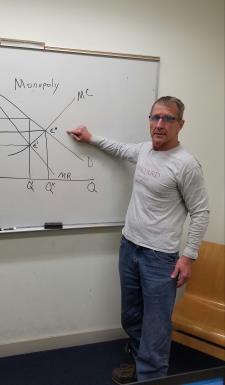Daniel B. answered • 05/20/19
Experienced Tutor Specializing in Reading, History, Test Prep
Economist typically distinguish between public goods and private goods. A public good is non-rival and non-excludable. Non-rival means that Person A's consumption of a good doesn't exclude Person B from consuming the good. Non-excludable means that it is difficult or impossible for the provider of the good to prevent people from consuming it.
National defense, for example, is a public good because Citizen A is not any less safe if the military is also defending Citizen B, and it would be very difficult for the military to exclude the benefits of national defense citizens who don't pay taxes that fund the military. Clean air, infrastructure, healthcare and education are other prominent examples of public goods.
A cup of coffee, on the other hand, is both rival and excludable. The cup of coffee is rival because Person A drinks some of the cup of coffee, then there is less for Person B to drink. The cup of coffee is excludable because the coffee shop will only serve paying customers.
Public goods cannot be provided by the private sector in an efficient manner: this phenomenon is called a market failure, so public goods are usually provide by the government/public sector. Private goods can be supplied by private companies.
When a country's public sector provides these goods, a healthy, educated workforce will attract investors and entrepreneurs to start new businesses, or attract factories to move to the country from another country. Companies cannot set up shop, transport products and supplies, or communicate with other locations if there is no electricity, literate workers, or paved roads in a given area. The rapid economic development of East Asian countries like Singapore, South Korea, and Taiwan is largely due to investments in infrastructure and public education by these countries' governments.





